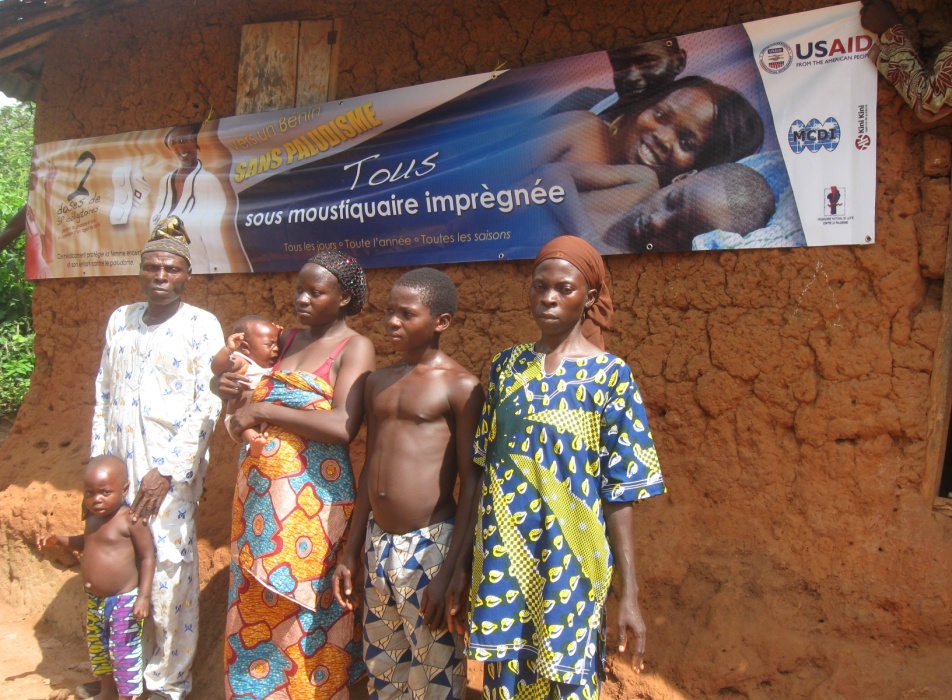While there is a new government health center only three kilometers away from Ibere village, people are still reluctant to use it, which means that many women and young children are not accessing preventive care and treatment for malaria.

r. Massafaye (far left) stands with his family at his home in Ibere village, under a banner that was affixed to his home to recognize him as a model in adopting malaria prevention behaviors. Source: ARM3
Artist and singer Salomon Massafaye lives in the village of Ibere, located in the Ahoyeye arrondissement within Benin’s Ouémé-Plâteau Department. While there is a new government health center only three kilometers away from Ibere village, people are still reluctant to use it, which means that many women and young children are not accessing preventive care and treatment for malaria.
In partnership with a local health zone, Mr. Massafaye’s arrondissement was selected to host a radio show about malaria to encourage people to access malaria services at the health center and to raise awareness about intermittent preventive treatment of malaria in pregnancy and the use of long-lasting insecticide-treated mosquito nets (ITNs). More than 100 women, primarily pregnant women and caretakers of young children, attended the event, which was broadcast live in October 2012 by Plateau FM Radio Olikiki of Pobe. The show’s premise is to inspire listeners to make positive changes in their lives based on the stories and experiences that participants share on the air.
Mr. Massafaye’s music band provided music for the event and he also volunteered to share his experiences with using ITNs. “Before, I did not know why bodies get hot from time to time,” said Mr. Massafaye. “Neither did I know what malaria was. I was confused when health providers asked whether my family has ever used a mosquito net. However, after hearing messages about malaria prevention from health providers, I decided to try an ITN. The last one I got was given to my wife when she visited the health center for prenatal care. I [now] have three long-lasting insecticide-treated nets in my house, one in each room,” he added.
Mr. Massafaye accompanied the radio program team to his house to show them his three ITNs. In the master bedroom, one ITN was already hung, while the two other ITNs were folded during the day and would be hung at nightfall. He insisted that, for many months, his household has remained malaria-free because each member of his family sleeps under a net each night, all year round.
With accurate information provided through appropriate channels, including advocates for change such as Mr. Massafaye, Beninese families can adopt malaria preventive behaviors. While the latest DHS in Benin (2011-2012) shows that already more than 75 percent of pregnant women sleep under an ITN, PMI and partners are continuing to work to ensure that use of an ITN becomes the norm.
